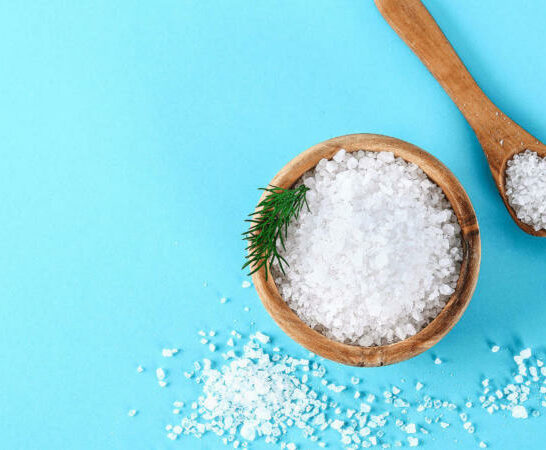Salt goes in just about every dish you make so it’s important to know whether or not it’s possible to leave it in the pan too long so that it burns. There are tons of different types of salt too so in this blog post you’ll learn if salt can burn, how it reacts with heat, and which types of salt cook better in high temps.
Can You Burn Salt?
Table salt used in most households will not burn. The smoke point for salt is around 1474°F (801°C) which is higher than the average stovetop temperature. That means that unless you’re cooking with a blow torch, it’s pretty much impossible to burn salt.

What Is Salt Made Of?
Salt is made of sodium and chloride molecules. These molecules have opposite charges and combine to produce the delicious table ingredient you know and use.
There are many different types of dishes in many different cultures that use salt. It’s a key ingredient in most savory dishes because it enhances the flavor of food.
Sodium Chloride does not burn because the molecules have a high melting and boiling point. The molecules are also very stable, meaning they do not break down easily.
When you’re using salt to cook with you don’t have to worry about it catching fire if it is left on the stovetop for too long. In fact, if you were to pour a large amount of salt directly onto a fire it would end up putting the fire out.
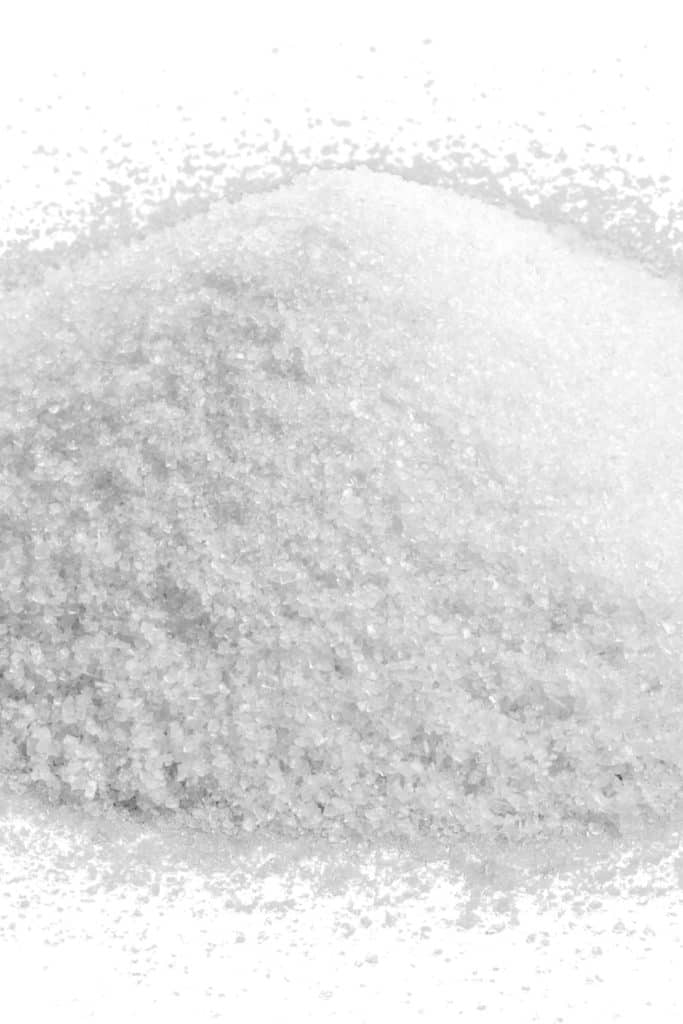
Can You Melt Salt?
Although you can’t burn salt or catch it on fire, it does have a melting point of 1474°F (801°C). That means that if you’re cooking with very high heat you may be able to melt salt.
The best way to test this is to put a small amount of salt in a pan and turn the stove up to its highest setting. If the salt melts, it’s safe to say that any other type of salt will melt as well.
It’s not recommended to actually melt salt though because you wouldn’t be able to use it with anything. The melted salt goes through a chemical breakdown changing its entire structure.
Go ahead and stick with regular salt when cooking instead of trying to experiment with some melted alternatives.

What Happens When Salt Reacts With Heat?
When salt is heated it turns from a white color to a translucent yellow. This happens because the molecules are rearranged and the bond between them is broken. If you were to throw salt over a fire, the color of the fire would change.
This isn’t necessarily because the salt is breaking down though it’s because the energy of the electrons from the salt changes to emit a different light. The crazy part is if you put out the fire shortly after, you will notice no physical change to the salt particles.
Salt can also change color when it’s mixed with other ingredients. For example, if you were to add salt to a sauce it would change the color slightly. This is because the light waves are scattered in different directions when they hit the salt molecules.
The type of salt you use can also play a role in how it changes color when heated. For example, pink Himalayan salt will turn red when heated because of the minerals present in the salt.
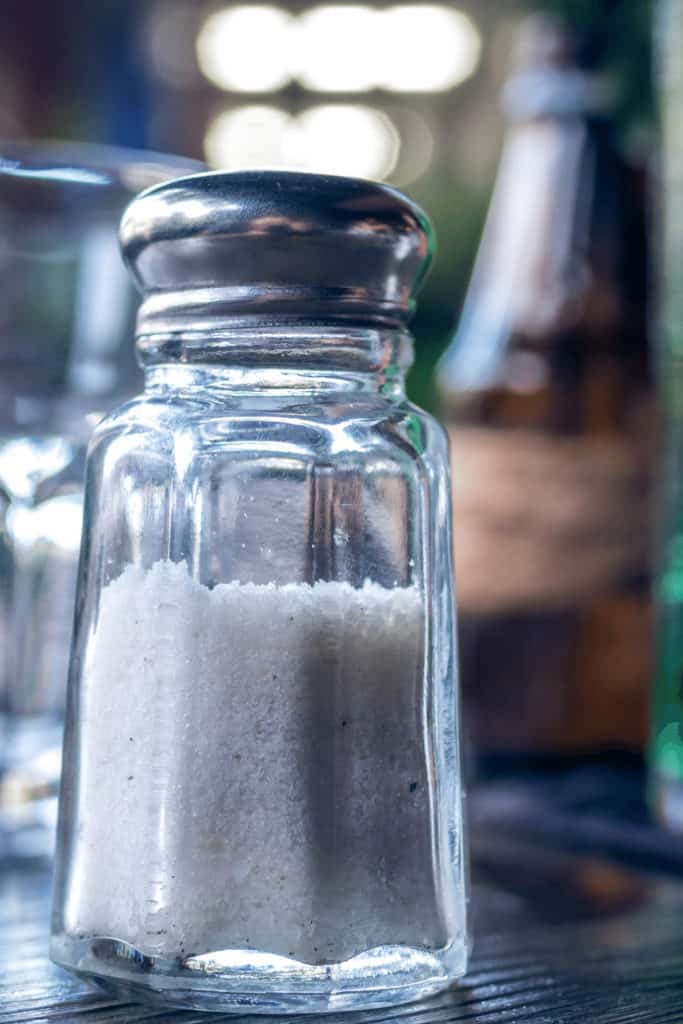
Which Type Of Salt Is Better In High Heat?
If you’re going to be cooking with high heat it’s best to use a salt that has a coarse texture. This is because the larger grains will take longer to break down and will not change color as quickly.
Of course, this also means the salt won’t absorb as quickly and easily into the food you are cooking. You might be eating and have a slightly crunchy texture when you bite into a salt piece.
The flavor wouldn’t be the same since the salt doesn’t absorb evenly into your meal. Kosher salt and Himalayan salt are two types of salt that have a coarse texture and would be best to use in high heat cooking.
If you were to use Mortons it would probably still be ok because of the high melting point but if you are ever questioning what to use, it’s better to be safe and stick with coarse salt.
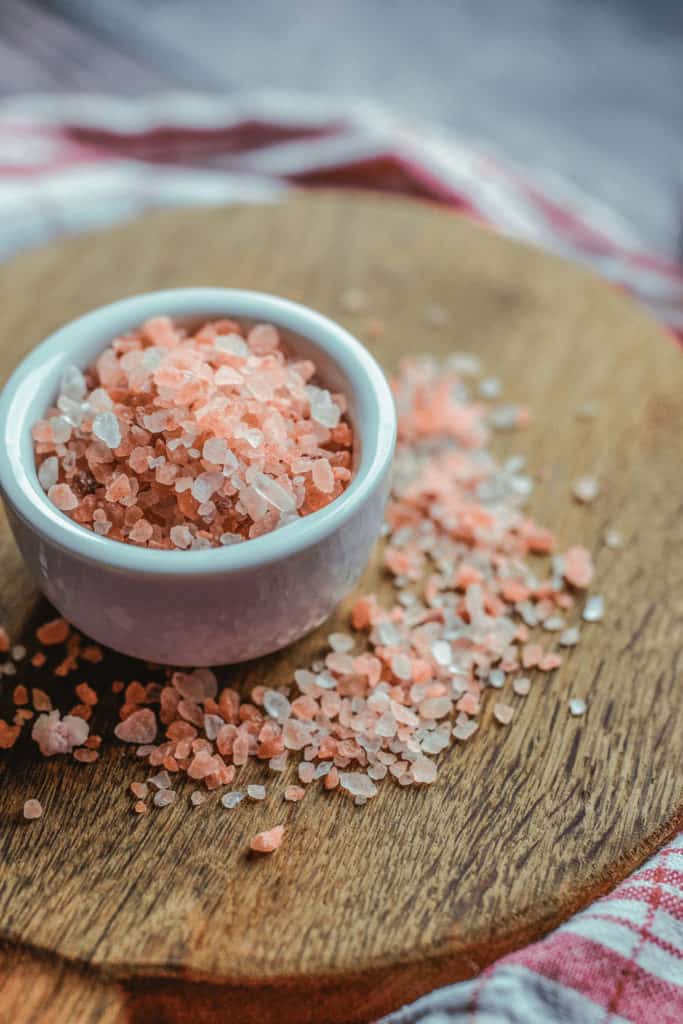
Can You Reform Melted Salt?
The everyday cook does not need to worry about trying to reform melted salt because it would be unlikely they’d ever be in a situation where they’d need to.
However, for those who are interested, it is possible to take melted salt and turn it back into its original form. This can be done by cooling the salt down quickly so that the molecules don’t have time to rearrange.
The process is called recrystallization and is commonly used in the lab. It can be done at home but requires special equipment that the average person doesn’t have access to.
Reforming melted salt isn’t something you’ll need to do on a regular basis, if at all, but it is interesting to know that it’s possible. Many artists will often work on this basic of melting and reforming salt particles.
The main use is for artistic expression though and has little to do with cooking. They also have different techniques for accomplishing that would be difficult to recreate in the kitchen.
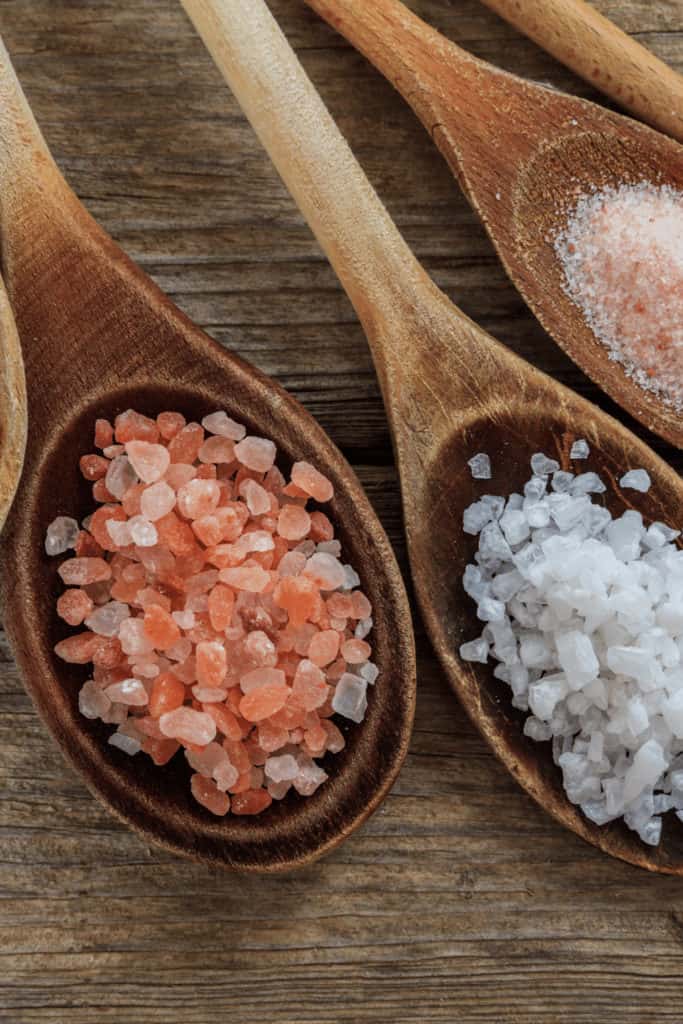
Frequently Asked Questions About Can You Burn Salt
Does Salt Explode?
Salt will never explode because it’s an ionic compound which means that the molecules are held together by electrostatic forces instead of covalent bonds. Covalent bonds are much weaker and can be easily broken with a small amount of heat or pressure. Ionic compounds are much more stable and will not break down easily.
Can You Use Melted Salt for Cooking?
The only way to use melted salt is in artistic forms of expression to create statues or other 3D objects. Melted salt does not work in cooking because the molecules have changed and will not interact the same way with other ingredients.

